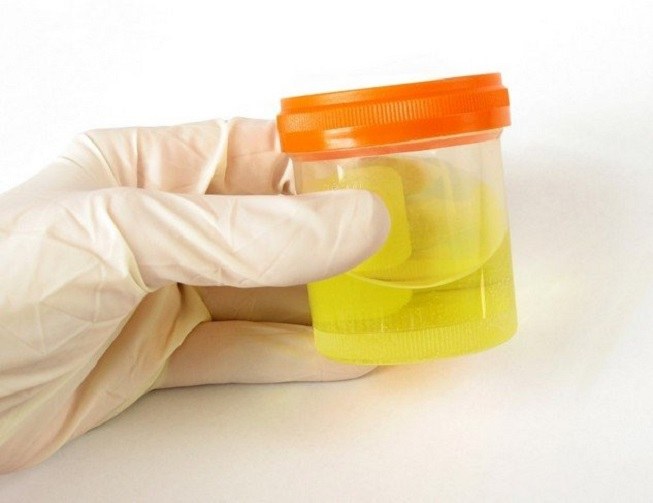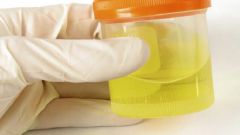Reasons for increased protein content
A slight increase in its number does not always indicate disease of the kidneys. Functional proteinuria can occur when there is inflammation in the ureters, bladder and urethra, and also during pregnancy. In addition, the appearance of proteinuria contribute to allergic reactions, leukemia and epilepsy.
In some cases, this symptom appears in healthy people (false proteinuria) after strenuous exercise, a cold shower, when sweating and drinking large quantities of protein foods.
Pathological (true) proteinuria is always a sign of renal pathology (pielonefrita, glomerulonephritis, nephrosis), and is characterized by a high concentration of protein in the urine (0,5 - 3%).
Additional examination for proteinuria
The detection of protein in urine should not panic − it is sometimes inadvertently revealed. If urinalysis showed the presence of more protein 0.33 g/l, required additional laboratory research that will establish the cause and to appoint optimum treatment. It includes the determination of protein in daily urine, analysis of urine by zimnitskiy (determining the filtration ability of the kidneys), Nechiporenko (ratio of red blood cells and white blood cells), urine culture on the flora and sensitivity to antibiotics, the study of daily urine for sugar.
The high content of leukocytes in urine
Leukocytes are blood cells that perform immune function, kill bacteria, viruses, parasites and cancer cells. Normal white blood cell count in men is from 0 to 3 in sight, women and children from 0 to 6. Raising their level above 10 (pyuria) may indicate inflammatory diseases of the urinary system (kidneys, ureters, bladder) and prostatitis in men, infections of the genital organs and the violation of elementary rules of personal hygiene.
How to be in leukocyturia
The main symptoms of the high content of leukocytes in the urine are pain when urinating and an unpleasant odor. Upon receipt of the results of the urinalysis need to seek the advice of a urologist. To determine the cause leukocyturia he will appoint an additional examination including a General blood test, cultures, urine analysis according to Nechyporenko, and renal ultrasound. After determining an accurate diagnosis will be appointed anti-inflammatory therapy.







